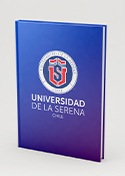Cross-disciplinary language changes in 4th graders as a predictor of the quality of written scientific explanation

Date
2023/06/01
Journal Title
Journal ISSN
Volume Title
Publisher
UNIV ANTWERP
Abstract
Upper elementary students face conceptual and linguistic challenges when writing in science. One way to scaffold science writing is the explicit teaching of cross-disciplinary language. Limited research has explored the dynamics of these language changes in instructional contexts. This study examines the micro-developmental changes in cross -disciplinary language skills and their contributions to the quality of 191 science explanations written by 65 fourth graders that participated in language and literacy-based instruction. The instruction's pedagogical design was focused on writing-to-learn and learning-to-write the scientific explanation genre. Each student wrote an initial, a scaffolded draft, and a final explanation that was scored for scientific quality and productive cross-disciplinary language skills. Students' prior and final scientific knowledge was also measured. The results showed large instruction size effects on the scientific quality (0.71), productive cross-disciplinary language skills (0.46), and explanation length (0.64). Stepwise regression analysis showed that prior and final science knowledge and productive cross-disciplinary language skills significantly predict the quality of the final explanation (R2 = .704, F(11,38) = 9.03, p < .000). This research offers evidence of the dynamic relationships between language, literacy, and science in contexts of explicit cross-disciplinary language instruction for disciplinary literacy and learning.
Description
Keywords
ACADEMIC-LANGUAGE, SCIENCE, STUDENTS, LEARN